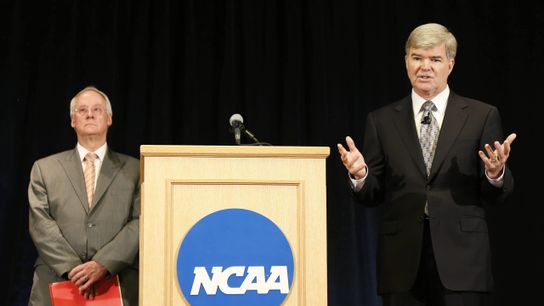Breaking news this morning as the Supreme Court has ruled unanimously against the NCAA.
Justice Kavanaugh wrote a concurring opinion, closing with:
To be sure, the NCAA and its member colleges maintain important traditions that have become part of the fabric of America—game days in Tuscaloosa and South Bend; the packed gyms in Storrs and Durham; the women’s and men’s lacrosse championships on Memorial Day weekend; track and field meets in Eugene; the spring softball and baseball World Series in Oklahoma City and Omaha; the list goes on. But those traditions alone cannot justify the NCAA’s decision to build a massive money-raising enterprise on the backs of student athletes who are not fairly compensated. Nowhere else in America can businesses get away with agreeing not to pay their workers a fair market rate on the theory that their product is defined by not paying their workers a fair market rate. And under ordinary principles of antitrust law, it is not evident why college sports should be any different. The NCAA is not above the law.
The full 45 page opinion can be read here.
To be clear, this is a very big deal; but this doesn't necessarily immediately give the players what they might or might not be looking for.
To sum up-- NCAA lost 9-0. 8 Justices agreed that this was a modest win for the plaintiffs because they were only addressing a narrow issue. Kavanaugh wrote separately to blast the NCAA's entire amateurism defense under antitrust law.
— Gabe Feldman (@SportsLawGuy) June 21, 2021
This isn't NIL or paying the players, but the way the Supreme Court ruled and wrote about the NCAA and its model was pretty straight forward about the future. https://t.co/6jeeEJRzKl
— Tom VanHaaren (@TomVH) June 21, 2021
What does SCOTUS ruling mean?
— Ross Dellenger (@RossDellenger) June 21, 2021
Immediately, under approval from their conferences (I think), schools could give athletes educational related benefits like laptops.
Long term, it further craters NCAA’s amateurism model & may lead to more antitrust suits.
However, this does pave the way for significant change to the "collegiate" model.
NCAA has relied on Board of Regents for 50 yrs. SCOTUS cuts it down w/ 1 sentence:"Given the sensitivity of antitrust analysis to market realities-and how much has changed in this market- we think it would be particularly unwise to treat an aside in Regents as more than that"
— Gabe Feldman (@SportsLawGuy) June 21, 2021
NEW: In a victory for college athletes, SCOTUS unanimously invalidates a portion of the NCAA's "amateurism" rules. The court says the NCAA can no longer bar colleges from providing athletes with education-related benefits such as free laptops or paid post-graduate internships.
— SCOTUSblog (@SCOTUSblog) June 21, 2021
To be clear, this decision is not going to allow for a professional, pay-for-play model.
— Andrew Brandt (@AndrewBrandt) June 21, 2021
But it does not allow the NCAA to stop colleges from providing athletes with education-related benefits such as free laptops or paid post-graduate internships.
Jeff Kessler, victorious Alston attorney, tells @SINow schools can immediately provide education benefits to athletes beyond tuition.
— Ross Dellenger (@RossDellenger) June 21, 2021
They include: unlimited grad school/vocational/study abroad scholarships, computers/equipment, tutoring & up to $5,900 cash for academic awards.
Again, this ruling opens the door to more substantial change in the future...
Kavanaugh also writes (in concurrence) that the remainder of the NCAA's no compensation rules might not survive the next antitrust attack. He says the argument that student athletes must not be paid "is circular and unpersuasive."
— Gabe Feldman (@SportsLawGuy) June 21, 2021
Oh, and this...
It is the NCAA that petitioned the Supreme Court to review the 9th Circuit’s decision in Alston.
— Alicia Jessop (@RulingSports) June 21, 2021
Last fiscal year, the NCAA spent nearly $73 MILLION on legal fees.
It just got dealt a 9-0 blow on its amateurism rules. It will now press Congress for an antitrust exemption.
Final (maybe) thought:
The irony: Could NCAA amateurism be saved by players being declared employees, unionizing and then entering into a collective bargaining agreement with the NCAA and member schools? That would be a stunning conclusion but is plausible since CBA terms are exempt from antitrust law. https://t.co/1SdDF5qDD2
— Michael McCann (@McCannSportsLaw) June 21, 2021
